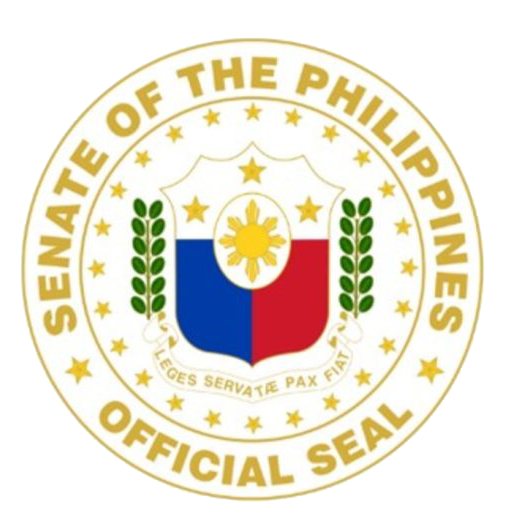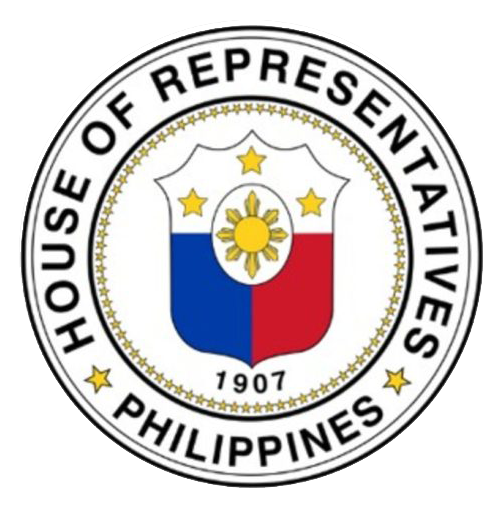Charting Legislative Action for Foreign Policy Implementation
Atty. Dana Paula M. Alberto
“With respect to our place in the community of nations, the Philippines shall continue to be a friend to all. And an enemy to none …
“We will be a good neighbor – always looking for ways to collaborate and cooperate with the end goal of mutually beneficial outcomes.
“But we will not waver. We will stand firm in our independent foreign policy, with the national interest as our primordial guide.”[1]
The Marcos administration’s foreign policy stance: ‘friend to all and enemy to none’
The President’s role as the sole organ in the conduct of foreign relations and the constitutionally assigned chief architect of the country’s foreign policy is beyond question.[2] As such, President Ferdinand Marcos Jr. has adopted a foreign policy of being “friend to all and enemy to none” as a guide.
With this, the following areas were tagged by President Marcos as priorities for international cooperation in his first State of the Nation Address in 2022: clean energy, agriculture, economy, trade, defense, pharmaceuticals, education, culture, and addressing climate change.[3]
However, the pronouncement of President Marcos of the friend to all and enemy to none stance has a condition—his foreign policy should only be based on the country’s national interest.[4] This condition is in line with the State’s mandate to place paramount consideration on national sovereignty, territorial integrity, national interest, and the right to self-determination in its relations with other states (Republic Act No. 708, as amended).[5]
So how does the State gauge if the treaties and executive agreements benefit the country’s national interest? The answer lies in the three pillars of independent foreign policy.
Despite changes in the administration, the charting of independent foreign policy is still guided by these three long-established pillars: (i) preservation and enhancement of national security; (ii) promotion and attainment of economic security; and (iii) protection of the rights and promotion of the welfare and interest of Filipinos overseas (Del Rosario, 2014).[6]
Last June 15, 2023, the Capacity Building on Innovative Leadership for Legislative Staff (CBILLS) Program of the Development Academy of the Philippines hosted a lecture on “Charting Strategies for Philippine Foreign Policy in the 21st Century” wherein Acting Deputy Undersecretary Mr. Hans Mohaimin L. Siriban of the Department of Foreign Affairs discussed operationalizing the three pillars of independent foreign policy, which includes: (1.1) working with security agencies to pursue security and defense agenda covering sovereignty and territorial integrity, disaster resilience, climate change adaptation, capability modernization; (1.2) supporting efforts development of a maritime security strategy in cognizance of the country archipelagic nature; (2) taking forward the President’s 8-Point Socio-Economic Agenda that aims to reduce poverty to nine percent by the end of his term, and bring the Philippines to “upper-middle income” status; and (3.1) providing appropriate and effective interventions at each phase of migration cycle.
Legislative action on treaties/international agreements pending ratification
With the Executive spearheading the operationalization of the independent foreign policy, Senate concurrence is still indispensable to make the treaty legally effective and binding by transformation.[7]
There are thirteen treaties/international agreements in the pipeline awaiting Senate concurrence. Out of the thirteen, one has been reported out by the Senate Committee on Foreign Relations and is now ready for sponsorship; six are pending before the Senate Committee, one of which is ready to be reported out once supporting documents from the lead agency are received; six are in the process of securing certificates of concurrence from different government agencies prior to the preparation of the ratification package to be sent to the Senate for concurrence.
While ratification packages are still being prepared, Senators have filed resolutions urging the Executive Department to ratify treaties.
Prior to the transmittal of the ratification package, Senator Joel Villanueva and Senator Risa Hontiveros filed Proposed Senate Resolution No. (PSRN) 456 and PSRN 726, respectively, both urging the Executive Department to ratify the International Labor Organization (ILO) Convention No. 190 on the Elimination of Violence and Harassment in the World of Work, 2019, which is in line with the third pillar of foreign policy.
The filing of PSRN 456 was brought about by the continuing maltreatment, contract violations, sexual abuse and harassment, rape, and deaths of our migrant workers in the hands of their employers in the Middle East, Asia, and Europe; thus, there is an urgent need to strengthen protection to our overseas Filipino workers (OFWs) to stop the killings and maltreatment.[8]
Furthermore, PSRN 726 was filed due to the Department of Migrant (DMW) Workers report that in 2022, more than 24,000 cases of violation and abuse of OFWs working in Kuwait. In January 2023, the charred remains of an OFW working in Kuwait were found beside a road in the desert after being killed by her employer’s son. Hence, the ratification of ILO Convention No. 190 would assure reciprocal protections for all workers in the international community.[9]
PSRN 444 urging the concerned government agencies, through the DFA, to expedite the submission of their respective certificates of concurrence was also filed by Senator Loren Legarda prior to the transmittal to the Senate of the ratification package for the 2005 Convention on Diversity of Cultural Expresssions.
The Senator believes that with the ratification of the Convention, creative and cultural sectors in the Philippines will have better access to both domestic and foreign markets, and the creative professionals will be qualified to access the International Fund for Cultural Diversity established by the Convention to fund projects and activities of emerging dynamic cultural sectors in developing countries worth up to USD$100,000. She added that the Convention also creates a framework for a partnership to aid developing countries whereby developed countries shall facilitate cultural exchanges with developing countries by granting them preferential treatment to artists, goods, and services.[10] It is noteworthy that the Philippines is one of the top exporters of creative goods and industries among developing nations with USD$915 Million in 2014.[11]
Although not included in the thirteen treaties in the pipeline, Senator Villanueva filed PSRN 534, urging the Executive Department to ratify the International Labour Organization Work in Fishing Convention, 2007 (No. 188).
Treaties pending before the Senate: economic security and protection of Filipinos overseas
The Senate has concurred in international agreements on the avoidance of double taxation, which falls under the purview of the second and third foreign policy pillars.
The Department of Finance set forth the following benefits of the Double Taxation Agreement between the Philippines and Brunei before the Senate Committee on Foreign Relations: (i) mitigate the adverse effects of double taxation on the profits of business enterprises in cross-border transactions; (ii) enhance the bilateral trade relations between the Philippines and Brunei; (iii) can result in more employment opportunities for Filipinos in Brunei and will help those who are currently working therein; and (iv) strengthen the Philippines’ commitment to the ASEAN Forum on Taxation.
The mentioned benefits are common in double taxation agreements; thus, in requesting additional scenarios that will help determine whether the agreement is truly beneficial, the Senate Committee proved that it would not blindly recommend for the concurrence of all treaties referred to it.
Other benefits that were raised before the Committee include: (i) joint ventures in the field of information and communications technology; (ii) transfer of technology in the production of halal goods and services; and (iii) potentially providing other Philippine franchisees and brands opportunities for expansion into Brunei.
On September 11, 2023, the Senate Committee on Foreign Relations filed Committee Report No. 119 reporting out PSRN 790 entitled, “Resolution Concurring in the Ratification of the Agreement Between the Government of the Republic of the Philippines and the Government of His Majesty The Sultan and yang Di-Pertuan of Brunei Darussalam for the Avoidance of Double Taxation and the Prevention of Fiscal Evasion with Respect to Taxes on Income”.
The next step for this double taxation agreement is for it to be sponsored in Plenary. It would be of great help if, prior to Plenary debates, government agencies such as the Bureau of Internal Revenue and the Board of Investments provide the sponsoring Senator with figures on estimated income and investments once the double taxation agreement comes into force.
Meanwhile, the negotiations of social security agreements (SSAs) have been done since 1982 and as of this time, the Philippines has fifteen SSAs in force, which only show that the country takes the third pillar of independent foreign policy seriously.
The “Agreement on Social Security Between the Government of the Republic of the Philippines and the Government of the Republic of Korea” had its hiccups before the Senate Committee on Foreign Relations because the Committee wanted proof that the Filipino community organizations in the Republic of Korea are amenable to the SSA, the reason being the first SSA with the Republic of Korea signed in 2005 was not able to acquire concurrence from the Senate precisely because of objections from the OFWs.
According to the Department of Foreign Affairs (DFA), unlike the 2005 version, the 2019 SSA provides equal treatment and continued coverage of Filipino workers in the Republic of Korea under the National Pension System (NPS) and their eligibility to receive the lump-sum benefits on the same terms as the Korean nationals. In addition, special benefits are available to OFWs such as the totalization of creditable period for purposes of old-age pension, portability of claims, and mutuality of assistance for Social Security System and NPS members wherever they are.
The DMW was then tasked by the Committee to explain the changes in the 2019 SSA from the 2005 SSA and to secure the position of the Filipino community organizations, from which the Committee will factor in its recommendation of concurrence.
The Committee is now waiting for the full documentation folio to include the report of proceedings, presentations, photo and video documentation, and manifest of support from the Filipino community organizations to the new SSA.
The two treaties that the Committee plans to schedule for public hearing at the time of this writing are the “Treaty between the Government of the Republic of the Philippines and the Government of Canada on the Transfer of Sentenced Persons and on Cooperation in the Enforcement of Penal Sentences” and the UNESCO “2005 Convention for the Protection and Promotion of the Diversity of Cultural Expressions”.
In preparation for the public hearings to be conducted, the Committee already requested and received briefers from the respective lead agencies of the treaties.
The Philippines-Canada treaty was signed in 2003 and was submitted for Senate concurrence in 2003. With its ratification on January 24, 2023, resubmission to Senate for its concurrence is necessary because all proceedings on treaties shall terminate upon the expiration of the term of the Senators elected in the preceding elections and the same shall be taken up in the succeeding sessions of the Senate, as if presented for the first time.[12]
The DFA submitted that once the Philippine-Canada treaty enters into force, Filipino prisoners in Canada will have the opportunity to request transfer to the Philippines in order to undergo rehabilitation closer to their families and with inmates of common language, culture, customs, and tradition.
Hence, the Philippine-Canada treaty falls squarely within the third pillar of independent foreign policy.
The 2005 Convention on the Diversity of Cultural Expressions is in line with the second pillar of independent foreign policy and the priority areas of economy, trade, and culture. It shapes the design and implementation of policies and measures that support the creation, production, distribution of, and access to, cultural goods and services as well as provides a new framework for informed, transparent, and participatory systems of governance for culture.[i]
As mentioned above, the creative and cultural sectors in the Philippines will have better access to both domestic and foreign markets once the 2005 Convention will come into force.
Moreover, the Senate needs to concur in the 2005 Convention on the Diversity of Cultural Expressions as this is the French Government’s requirement before concluding its Co-production Treaty with the Philippines.[13]
The three treaties that were just referred to the Committee are the Convention on Mutual Administrative Assistance in Tax Matters, the Host Country Agreement (HCA) between the Government of the Republic of the Philippines and the International Fund for Agricultural Development (IFAD), and the ILO Convention No. 190.
The first two mentioned fit the second pillar of foreign policy, while the last is in line with both the second and third pillars of foreign policy.
The Convention on Mutual Administrative Assistance in Tax Matters, which is the most comprehensive multilateral instrument available for all forms of tax cooperation to tackle tax evasion and avoidance. It provides all possible forms of administrative cooperation between States in the assessment and collection taxes, ranging from exchange of information to the recovery of foreign tax claims.[ii]
IFAD is an international financial institution and specialized UN agency. Since 1978, IFAD has financed 16 projects in the Philippines and has provided investments in the amount of $321 Million.[14] The Philippines and IFAD signed an HCA on March 7, 2019. Concurrence of the Senate is necessary for the establishment of an IFAD country office in the Philippines.
And the latest treaty referred to the Committee is ILO Convention No. 190 requires governments that ratify the Convention to enforce necessary laws and policy measures to prevent and address violence and harassment in the world of work (International Labour Organization, n.d.).[15] As previously stated, ILO Convention No. 190 would assure reciprocal protections for all workers in the international community.
Strengthening Executive and Legislative Cooperation for Foreign Policy Implementation
Considering the importance of Executive and Legislative cooperation for foreign policy implementation, they may consider the following:
- Constant update on the treaties pending Senate concurrence. Generally, the Senate Committee on Foreign Relations will only be able to fully study the treaties referred to the Senate after the transmittal of the ratification package by the DFA. Thus, the Executive, through the DFA, may help the Senate by constantly updating the latter on treaties once endorsed by the lead agency to the DFA. Correspondence from the DFA notifying the Senate or its Committee on Foreign Relations is best accompanied by a briefer on the newly endorsed treaty. This will give the Senators, especially the Chairperson and the Members of the Committee, ample time to familiarize themselves with the treaty before giving (or denying) a vote for concurrence.
- Senate Committee on Foreign Relations to observe treaty negotiations. Treaties are the products of the acts of the Executive and the Senate.[16] Since legislative participation in treaties is limited to Senate concurrence,[17] one of the ways for the Committee to have a deeper understanding of a treaty is if they are invited to be personally present during negotiations. Considering that the Executive has the sole power to negotiate, the Senate may only observe during the latter part of the treaty negotiations, most probably when the substance has been decided and ironed out. The more personal knowledge the Senate has on the treaty, the better chances of concurrence as well as a more refined transformation to local legislation.
- Accredited Filipino community organizations consultation and consent. Preparation and submission of the folio on the consultation and consent of Filipinos affected by a treaty may be submitted to the Senate once the Committee has scheduled the same for public hearing. This may provide some form of assurance to the Senators that their constituents were apprised and agreed to the effects of the treaty to their lives.
- Inter-agency coordination and cooperation. During the public hearing of the SSA between the Philippines and Republic of Korea, the Social Security System requested the Bangko Sentral ng Pilipinas to issue a policy or advisory to Philippine banks to allow the opening of accounts to non-resident pensioners covered by the SSA.[18] To avoid the impression that the treaty will experience difficulty in implementation, the Executive should first iron out the policies of its implementing agencies that are necessary for the smooth enforcement of treaties and for the country to reap the benefits without hindrance from its own agencies.
Although the President is the sole organ in the conduct of foreign relations, Congress has a shared responsibility in the implementation of the country’s foreign policy, either in the exercise of the Senate’s constitutional mandate to concur in treaties or both Houses of Congress’ power to transform treaties into domestic laws. Thus, Executive and Legislative cooperation is imperative.
[1] “Transcript: President Ferdinand R. Marcos Jr.’s First State of the Nation Adress Speech (as delivered), 28 October 2022, https://pia.gov.ph/publications/2022/10/28/transcript-president-ferdinand-r-marcos-jrs-first-state-of-the-nation-address-speech-as-delivered
[2] Rene A.V. Saguisag, et al. v. Executive Paquito N. Ochoa, Jr., et al., G.R. No. 212426, 12 January 2016
[3] Rocamora, J.A.L., “Marcos charts independent foreign policy, ‘friend to all’ stance”, 25 July 2022, https://www.pna.gov.ph/articles/1179677
[4] Id.
[5] Section 3, Republic Act No. 7157
[6]Del Rosario, A.F., “A Principled Foreign Policy: A collection of Speeches 2011-2013” (2014)
[7]1987 Constitution, Article VII, Section 21; Malaya, J.E., Casis, R.J.,
Treaties: Guidance on Practices and Procedures, Department of Foreign Affairs, 2018
[8]Sen. Joel Villanueva, Proposed Senate Resolution No. 456, Tenth Wheareas Clause
[9]Sen. Risa Hontiveros, Proposed Senate Resolution No. 726, Tenth and Thirteenth Whereas Clauses
[10]Sen. Loren Legarda, Proposed Senate Resolution No. 444, Eleventh and Twelfth Whereas Clauses
[11] Id., Tenth Whereas Clause
[12] The Rules of the Senate, Rule XXXVI Concurrence in Treaties, Section 101
[13] “Philippines, France to renew film cooperation agreement”, Film Development Council of the Philippines, 8 July 2021, https://www.fdcp.ph/index.php/updates/philippines-france-renew-film-cooperation-agreement
[14] “IFAD and the Philippines to invest $95.1 million in agribusiness development to increase incomes and reduce rural poverty”, International Fund for Agricultural Development,https://www.ifad.org/en/web/latest/-/news/ifad-and-the-philippines-to-invest-95-1-million-in-agribusiness-development-to-increase-incomes-and-reduce-rural-poverty
[15] “Elimination of Violence and Harassment in the World of Work”, International Labor Organization, https://www.ilo.org/global/topics/violence-harassment/lang–eng/index.htm
[16] Supra, note ii
[17] Senators Francis “Kiko” N. Pangilinan, et al., v. Alan Peter S. Cayetano, et al., G.R. No. 238875, 16 March 2021
[18] TSN, page 38, Public Hearing on the Agreement on Social Security Between the Government of the Republic of the Philippines and the Government of the Republic of Korea, Senate of the Philippines, Committee on Foreign Relations, 29 May 2023.
Disclaimer: The views expressed in this article are solely those of the author, and do not necessarily reflect the positions of the House of Representatives, the Senate of the Philippines, or the Development Academy of the Philippines.





